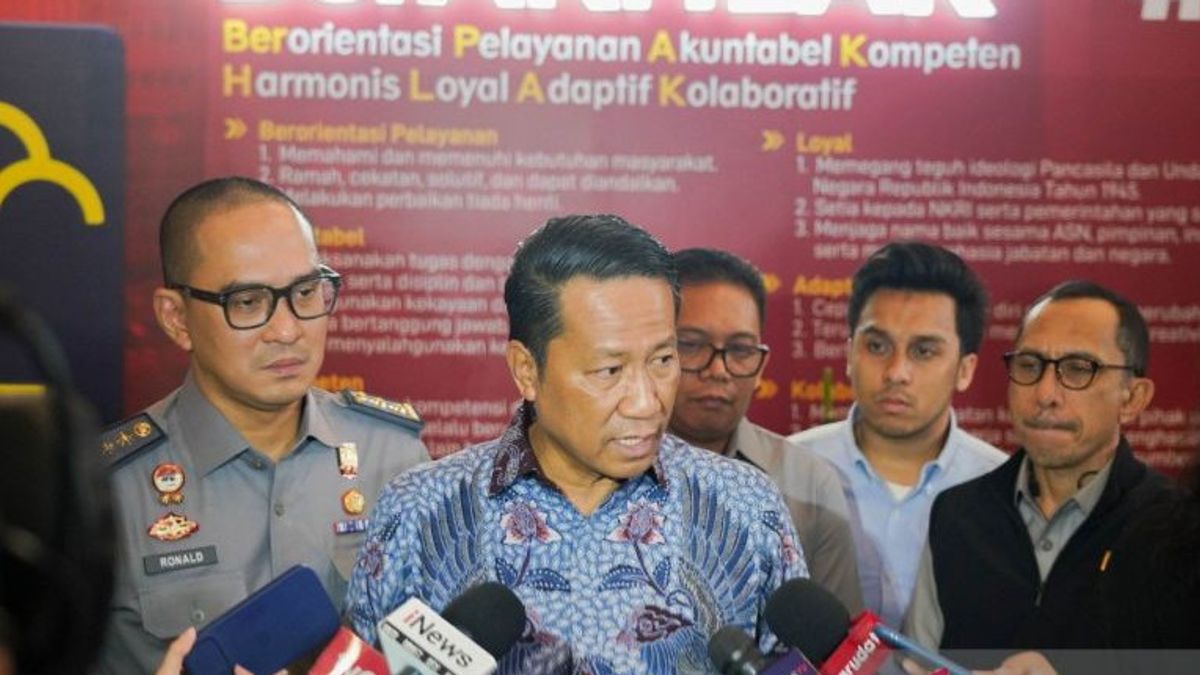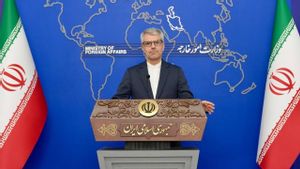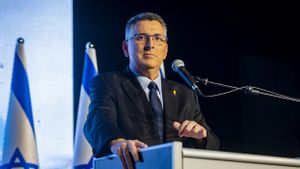JAKARTA - Minister of Law (Menkum) Supratman Andi Agtas said the President has the right to grant forgiveness to corruptors, but still through the supervisory process by the Supreme Court (MA) regarding clemency and the House of Representatives (DPR) in terms of granting amnesty.
Supratman also said that perpetrators of corruption or corruptors did not necessarily get amnesty or clemency.
"If you do clemency, you must ask the Supreme Court for consideration. As for amnesty, it goes to the DPR. This means that there needs to be someone to supervise so that there are considerations from the two institutions," said Supratman, Monday, December 23.
The former chairman of the Legislation Body of the DPR explained that the Indonesian government will seek maximum punishment for corruptors. In addition, the government also emphasizes aspects of asset recovery in corruption cases.
Giving forgiveness is not in order to allow perpetrators of corruption to be free. Not at all. Because the most important thing, for the government and the people of Indonesia, is how the asset recovery can run. Then if the asset recovery can be good, the return of state losses can be maximized. The President does not at all consider (corruptor forgiveness) to be carried out immediately," said Supratman.
The Minister of Law and Human Rights revealed that granting pardons to corruptors and other criminals is the right of judicial power, but the 1945 Constitution (UUD 1945) gives the president the constitutional right to have the judicial power.
Prior to the amendment to the 1945 Constitution, the judicial authority attached to the president as head of state was absolute. Then after the amendment to the 1945 Constitution, the president's power is not absolute. The president needs to ask for considerations from the Supreme Court and the DPR.
"Therefore, so that the decisions taken, whether clemency, amnesty, or abolition, have aspects of supervision. Not immediately, the President issued the two institutions without consideration," he said.
In addition to the president, the authority to grant forgiveness to corruptors and other criminals is also given to the Attorney General's Office through a peaceful fine. Thus, both the President and the Attorney General's Office are given room to provide forgiveness.
"Without the president it is also possible to grant forgiveness because the new Prosecutor's Law provides space for the Attorney General to make efforts to fine peace for corruption cases," said Supratman.
Supratman also said that the process of granting pardons to corruptors was still waiting for further directions from President Prabowo Subianto.
"Therefore, my friends will be able to wait for concrete further steps, after being given directions to us by the President," he said.
Previously, President Prabowo Subianto in his speech to Indonesian students in Cairo, Egypt, said that his party would provide opportunities for tobat corruptors as long as they return their stolen goods to the state.
The President said the opportunity to repent was given within weeks and months without specifying specific time.
"I'm in order to give you a chance, give you a chance to repent. Hey corruptors or who have felt like stealing from the people, if you return what you stole, we may forgive. However, please return it. Later we will give you the opportunity to return it," said President Prabowo in his speech at the Al-Azhar Conference Center Building, Al-Azhar University, Cairo, Egypt, Wednesday (18/12).
The English, Chinese, Japanese, Arabic, and French versions are automatically generated by the AI. So there may still be inaccuracies in translating, please always see Indonesian as our main language. (system supported by DigitalSiber.id)













